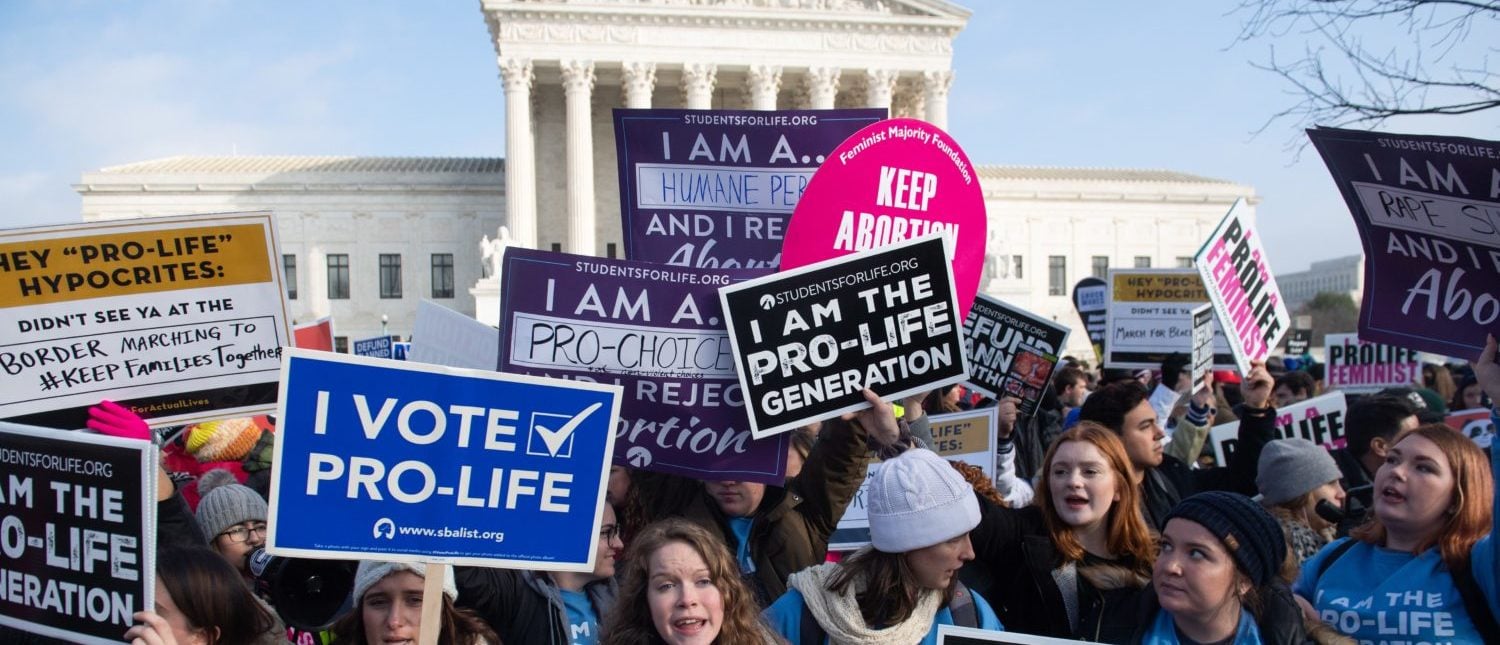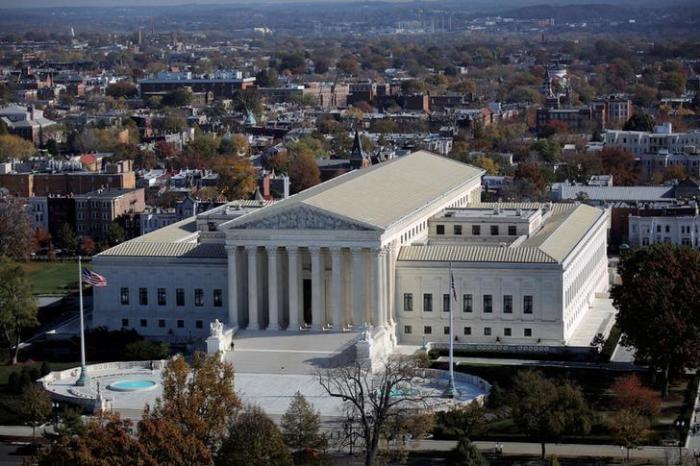The Supreme Court of the United States chose to compromise in a ruling published yesterday on a case having to do with abortion.
They reinstated a provision of Indiana law that requires abortion clinics to cremate or bury fetal remains, rather than sell or simply dispose of them as waste.
However, they declined to review a second provision that banned abortions on the basis of sex, race, or disability.
Here's what you need to know.
Be informed.
The overview:
- The Supreme Court reached an apparent compromise in an abortion dispute from Indiana, keeping the issue off its docket as abortion roils the 2020 race.
- The justices reinstated a rule providing for humane disposal of fetal remains, but left a lower court ruling striking down the state’s trait-selective abortion ban untouched.
- In a separate opinion, Justice Clarence Thomas said the states have a compelling interest in ensuring abortion does not become a tool of eugenics.
The compromise, however, is that the justices declined to review a second provision that banned abortions on the basis of sex, race, or disability---which is eugenics.
The 7th US Circuit Court of Appeals had previously ruled that both provisions were unconstitutional.
Humane disposal of remains.
The 7th Court had not identified a rational basis for its fetal disposal regulations since a fetus does not qualify under the law as a human being.
The Supreme Court ruling reversed that notion saying this:
"The Court has already acknowledged that a state has a legitimate interest in proper disposal of fetal remains. The 7th Circuit clearly erred in failing to recognize that interest as a permissible basis for Indiana's disposition lam."
The disposal aspect was a narrow decision, showing, I believe, the Court's willingness to compromise on issues of abortion. Or; establish a record of strict adherence to precedent prior to a possible ruling on Roe v Wade.
General responses.
The reactions to the Court's decisions were varied as expected. The American Civil Liberties Union (ACLU) noted that the ruling was limited in reach, but it feared it could legitimate a recent push at the state level to enact new restrictions on abortion.
ACLU lawyer Jennifer Dalven said:
"While the ruling is limited, the law is part of a larger trend of state laws designed to stigmatize and drive abortion out of reach. Whether it's a total ban or a law designed to shut down clinics, politicians are lining up to decimate access to abortion."
She's right. There is an awakening in America to just how barbaric and morally wrong abortion really is.
The Alliance Defending Freedom (ADF), a faith-based law group, was pleased that the fetal remains rules were restored, but disappointed that the Court did not address the state's ban on trait-selective abortion.
They said, "Unborn infants shouldn't be disposed of as 'medical waste' when they die before birth, regardless of whether their deaths are spontaneous, accidental, or induced."
In regard to "trait-selective" abortion; they called it a lethal form of discrimination.
Using abortion for purposes of eugenics.
In the 1992 Planned Parenthood v Casey matter, the Court ruled that the validity of abortion regulations would turn on whether they imposed an "undue burden" on abortion access.
Planned Parenthood did not argue that Indiana's fetal disposal rules an undue burden. Rather Planned Parenthood challenged the ruling under a different test.
The Supreme Court's opinion says, "This case as litigated, therefore, does not implicate our cases applying the undue burden test to abortion regulations."
Justices Ruth Bader Ginsburg and Sotomayor dissented from the Court's decision to restore disposal rules, but agreed that denying review of the trait-selective abortion ban was correct.
Justice Clarence Thomas had a very insightful response. He stressed that the constitutionality of trait-selective abortion bans are very questionable. No other Justice joined Thomas's opinion.
Justice Thomas's concern about eugenics should concern every pro-life Christian and conservative.
And his concerns should challenge every person who claims to be a Christian or conservative but supports pro-abortion political candidates.
Justice Thomas agreed with the unanimous decision to not take up the appeal, and said he believed that "the court will soon need to confront the constitutionality of laws like Indiana's" because of "the potential for abortion to become a tool of eugenic manipulation."
He said:
"This case highlights the fact that abortion is an act rife with the potential for eugenic manipulation. From the beginning, birth control and abortion were promoted as a means of effectuating eugenics."
He also pointed out that,
"Planned Parenthood founder Margaret Sanger was particularly open about the fact that birth control could be used for eugenic purposes. These arguments about the eugenic potential for birth control apply with even greater force to abortion, which can be used to target specific children with unwanted characteristics."
He noted that former Planned Parenthood President Alan Guttmacher, who after World War II "endorsed abortion for eugenic reasons and promoted it as a means of controlling the population and improving its quality."
Thomas also noted that with "today's prenatal screening tests and other technologies, abortion can easily be used to eliminate children with unwanted characteristics."
He wrote,
"In Iceland, the abortion rate for children diagnosed with Down syndrome in utero approaches 100%. Other European countries have similarly high rates, and the rate in the United States is approximately two-thirds."
And Thomas noted, "In Asia, widespread sex-selective abortions have led to as many as 160 million 'missing' women---more than the entire female population of the United States."
When then-Governor Mike Pence signed the bill into law that banned abortions on the basis of race, ancestry, gender, or disability, he said this: "I believe that a society can be judged by how it deals with its most vulnerable---the aged, the infirm, the disabled and the unborn."
Indeed.
Be Informed. Be Vigilant. Be Discerning. Be Pro-Active. Be Prayerful.


